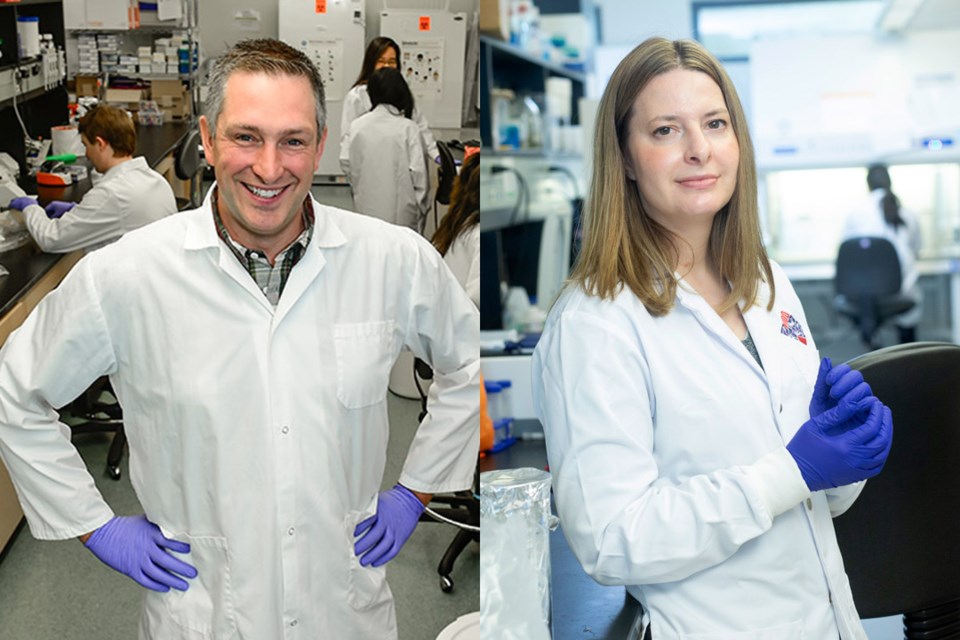SASKATOON – Scientists at the University of Saskatchewan’s (USask) Vaccine and Infectious Disease Organization (VIDO) have been recognized by the Canadian Institutes of Health Research (CIHR) for their international leadership in vaccine research for infectious diseases.
Drs. Darryl Falzarano (PhD) and Alyson Kelvin (PhD) received CIHR Leadership Awards for Excellence in Vaccine Research for Infectious Diseases of Epidemic Potential. In total CIHR funded six awards, with five in partnership with the Coalition for Epidemic Preparedness Innovations (CEPI).
The funding from CEPI is part of a new partnership with the CIHR announced during a virtual event to celebrate National Immunization Awareness Week. CIHR and CEPI will provide $2.7 million in grant funding to support Canadian scientists pursuing projects to prepare for epidemic and pandemic threats.
“The commitment and dedication of our team to help stop the COVID-19 pandemic has been incredible,” said VIDO Director Dr. Volker Gerdts (DVM). “Drs Falzarano and Kelvin are two key team members in this effort, and it is gratifying to see them receive this recognition.”
A new vaccine adjuvant for rapid deployment during future outbreaks
CIHR awarded Falzarano $200,000 to advance the development of a novel combination adjuvant―a component added to vaccines that helps promote the right kind of immune response.
In response to the COVID-19 pandemic, Falzarano and his team developed a protein subunit vaccine candidate formulated with this combination adjuvant. Preclinical research demonstrated this adjuvant boosted the immune response and importantly was able to provide protection in the upper respiratory tract―a characteristic that could help reduce virus transmission.
“This project will identify vaccine formulations that will optimize immune responses, stability, and ultimately protection,” said Falzarano. “It will advance the commercial readiness of a promising new vaccine adjuvant and help ensure it is available for the rapid deployment of future infectious disease threats.”
Falzarano will use synchrotron technology at USask’s Canadian Light Source to advance the characterization.
Universal vaccine approaches for COVID-19 variants and future coronaviruses
Kelvin will receive $200,000 from CIHR and an additional $200,000 from CEPI to develop a universal coronavirus vaccine. Creating a universal vaccine to protect against multiple coronaviruses (SARS-CoV variants of concern, Middle East respiratory syndrome coronavirus, future coronaviruses, etc.) will help control future potential pandemics.
Kelvin will identify similarities in the immune responses triggered by multiple coronaviruses to develop a universal coronavirus vaccine. The project includes collaborators in Rwanda and Bangladesh.
“New variants continue to lengthen the COVID-19 pandemic, and there is a constant threat of other emerging coronaviruses,” said Kelvin. “This project brings together an international team to develop a universal coronavirus vaccine that will have a global impact, especially for people in low- and middle-income countries.”
— Submitted by USask Media Relations




